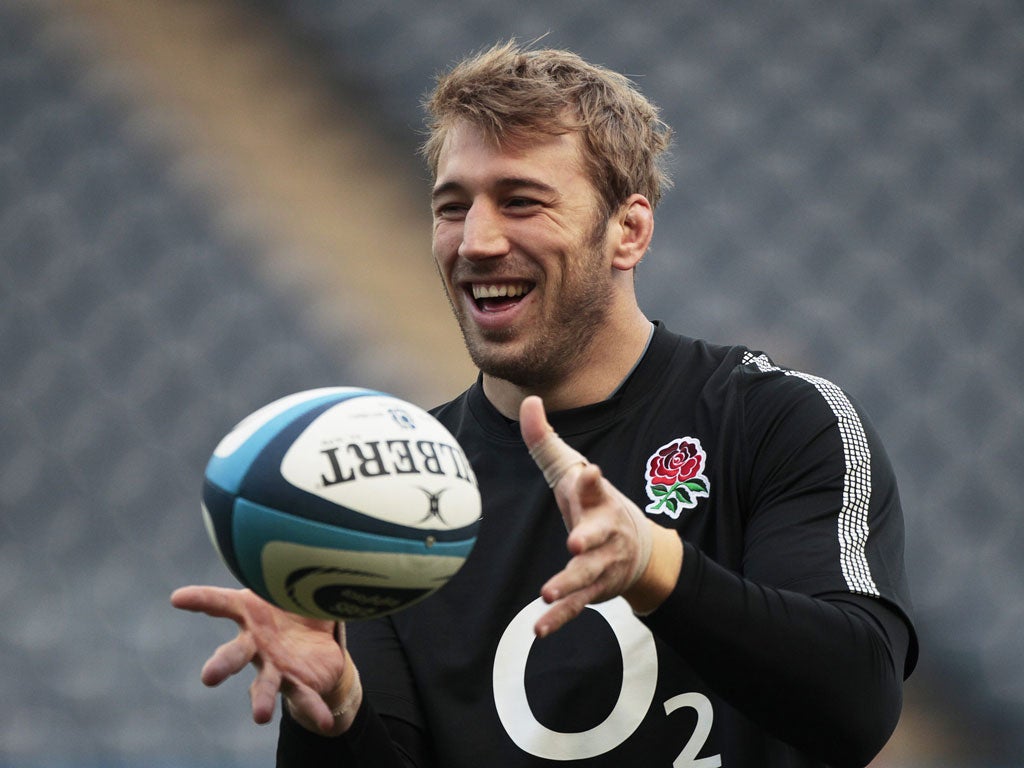Brian Ashton: Coach should be English, and Stuart Lancaster is correct choice
Tackling The Issues

In applauding Stuart Lancaster's appointment as England head coach through to the next World Cup and a few weeks beyond – and yes, I believe the Rugby Football Union's choice to be a positive one – I'd like to make a couple of broader points. Firstly, I find it reassuring that we have an Englishman in charge of the team. I'm not arguing that nationality alone should be the deal-breaker on these occasions, but it's good to see some renewed faith in our coach education system. Stuart is a product of that system and I hope it will go from strength to strength now the powers-that-be have backed it with this decision.
Secondly, I like the fact that Stuart comes from a teaching background. If it is the job of a teacher to be a good organiser, he must also be an excellent communicator who is skilled at creating a learning environment.
There are lots of career coaches who have a strong grasp of organisation, while not possessing the accompanying virtues. High-level coaching is not merely about tactics and strategy. It is, to a very significant degree, about making good players better. Once you understand that, you must surely recognise the importance of the learning environment. It is, to my mind, absolutely crucial.
I've known Stuart pretty well for some years now and we get along. I'm even coming to terms, albeit very slowly, with the fact that he lives in Yorkshire! (Speaking as a good Lancastrian, I can forgive a man being born in Cumbria, as Stuart was, but to move across the Pennines...) When I was running the national academy back in the mid-2000s, he was managing the equivalent club academy at Leeds. Quite often, we would hold our academy days up north, and Leeds was the obvious place for a base, not least because it was a dual-code operation involving talented youngsters from both league and union. Regular readers will be aware of my interest in the 13-man game, so as far as I was concerned it was the perfect location.
Stuart struck me then as someone with clear ideas about approach and he showed this quality again, in a far more pressurised situation, during the Six Nations. He could, in his caretaker role, have concentrated purely and simply on addressing England's problems on the pitch – and there were a few of those, as we know. Instead, he went deeper. He made it his business to tackle the cultural issues that had developed within the squad, restore what he considered to be the right values, re-emphasise the pride involved in wearing the national jersey and reconnect the players with the wider rugby public. Big tasks, well performed.
Stuart does not need me to tell him that there is a long road ahead, and that the road starts in a difficult place: namely, in South Africa this coming June. I travelled there twice with England, in 2000 and again seven years later. On both occasions, I knew we would be tested technically, tactically, physically and mentally – perhaps in ways we were unlikely to be tested anywhere else. But while we undertook the 2007 trip without players from the three leading clubs in the country, the earlier tour had parallels with this summer's visit.
England travelled in strength then, just as they will in a couple of months' time, and they played five games, as they will in June. Looking back, the 2000 tour was one of the main foundations of the World Cup victory three years later, and if we can say the same after the next global tournament in 2015, we'll all be pretty happy. But by the same yardstick, we must be wary of judging this relatively young and inexperienced England side on immediate results against the Springboks. The South Africans may be in a rebuilding phase themselves, but they will still be extremely formidable. Teams far more advanced developmentally than England have lost there, and lost heavily.
However, I think Stuart has advantages that should count strongly in his favour over the coming months. To begin with, he has generally worked with his current players in representative environments rather than in the school-club arenas – something that should not be underestimated. When people are taken out of their familiar surroundings and exposed to equally talented players who have different views and do things in different ways, you learn a great deal about their ability to adapt.
Also, he has confidence – a confidence he shows signs of instilling into his team. England's early victories in the Six Nations, against Scotland and Italy, were not pretty: they were backs-to-the-wall affairs of the kind you'd generally expect from a more hardened, experienced side. To win at Murrayfield in the way they did with half a dozen new caps on the field said a good deal about Stuart's work behind the scenes. A lot is said these days about the degree of experience needed to prevail in the biggest matches but, to my mind, confidence is more important still.
Join our commenting forum
Join thought-provoking conversations, follow other Independent readers and see their replies
Comments
Bookmark popover
Removed from bookmarks